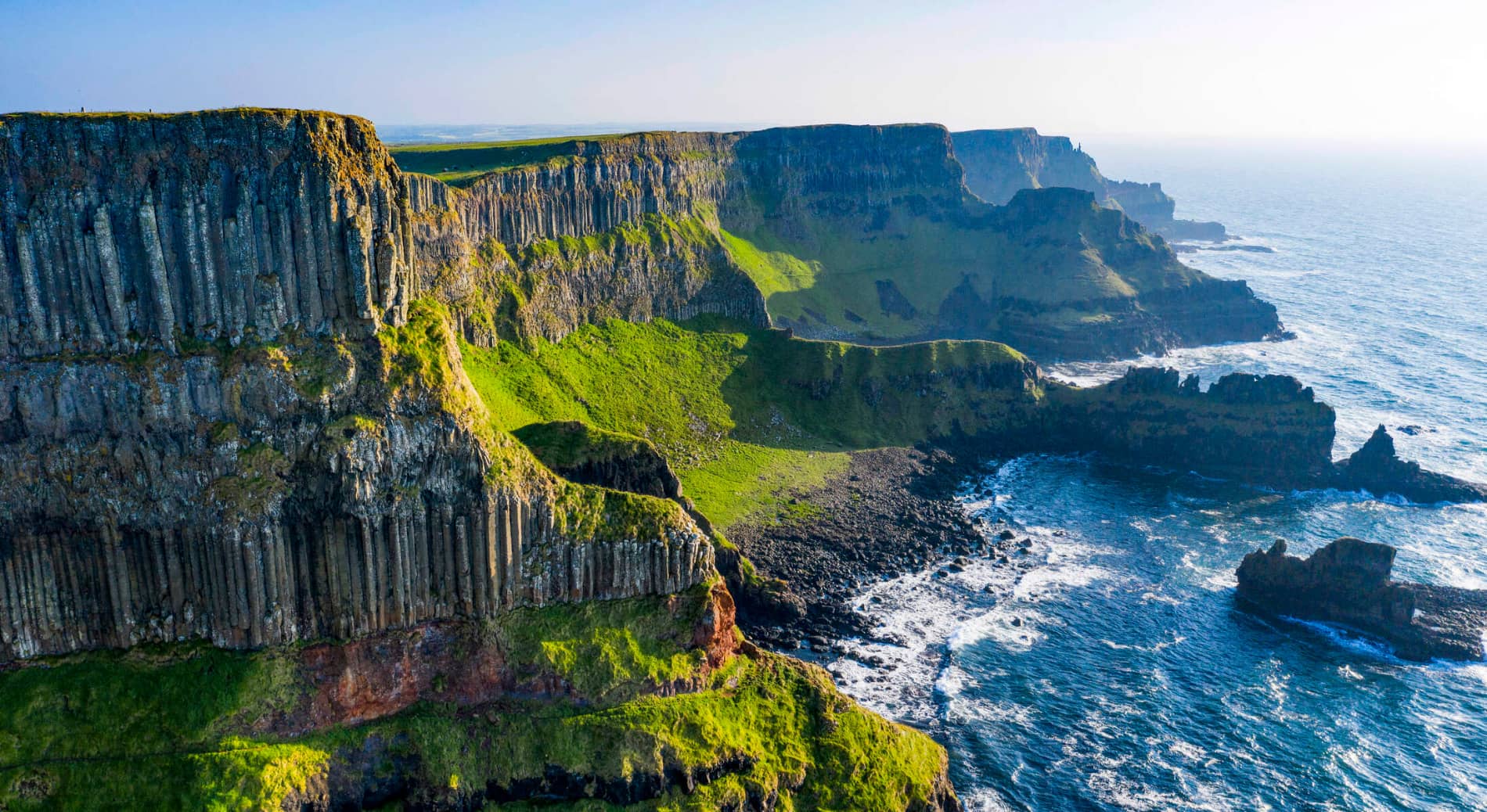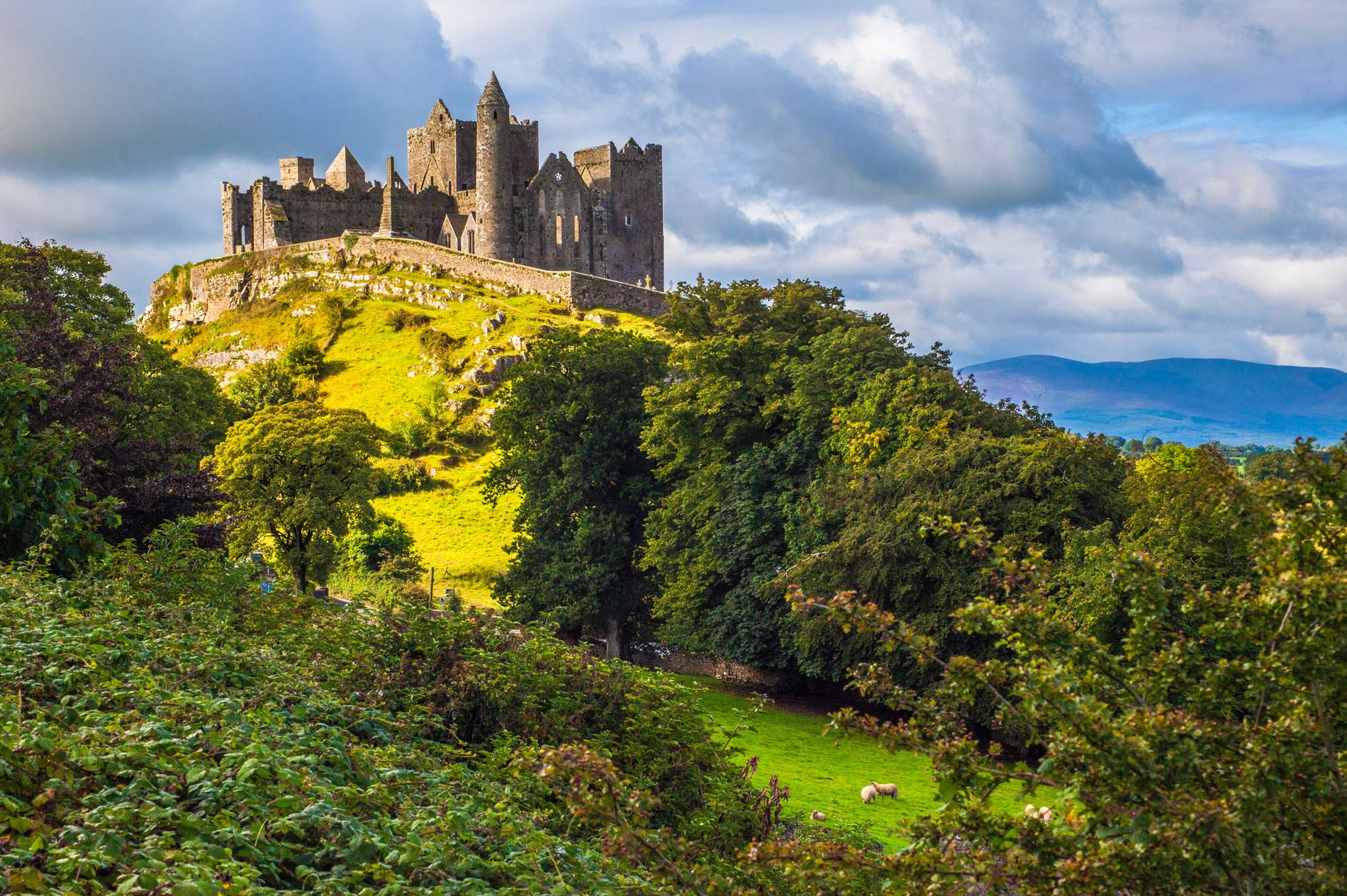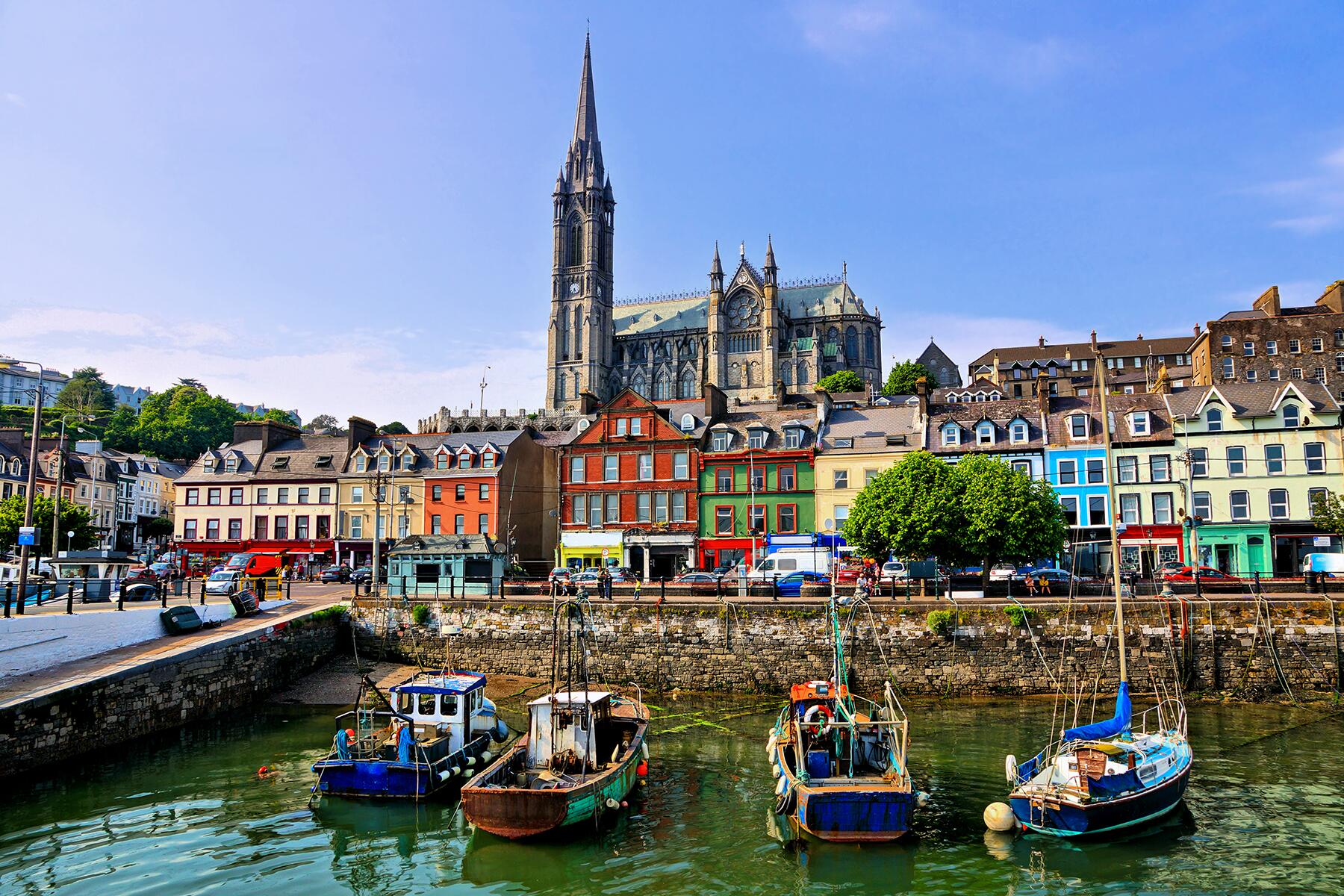Ireland & Iran: Shared History, Complex Present, Diplomatic Future
Table of Contents
- Historical Echoes: Independence and Identity
- The Evolution of Diplomatic Ties Between Ireland and Iran
- Economic Potential and Bilateral Trade
- Ireland's Unique Position in Global Diplomacy
- Cultural and Anthropological Connections
- People-to-People Links and Diaspora
- Challenges and Complexities in the Relationship
- The Path Forward for Ireland and Iran
Historical Echoes: Independence and Identity
The connection between Ireland and Iran might seem unlikely at first glance, given their geographical distance and distinct cultural trajectories. However, a closer look reveals fascinating parallels, particularly in their historical struggles for self-determination. On a significant occasion in Dublin, marking the 40th anniversary of the Islamic Revolution, the common histories of Ireland and Iran in fighting for independence were recalled. This shared experience of resisting external domination and striving for national sovereignty forms a powerful, albeit often understated, bond between the two nations. Both countries have rich histories marked by periods of foreign influence and persistent efforts to assert their unique cultural and political identities. Beyond political struggles, scholarly work has also explored deeper cultural resonances. The book "In Erin and Iran," featuring contributions from North American and European scholars, delves into parallel themes and interactions between Irish and Iranian cultures from ancient times to the twentieth century. This academic exploration suggests that the connections extend beyond mere political parallels, touching upon shared human experiences and perhaps even ancient migratory patterns that influenced both cultures. Just as common experiences with colonialism have facilitated Ireland's outreach to Algeria and Iran, this historical empathy allows for a unique understanding and basis for engagement.The Evolution of Diplomatic Ties Between Ireland and Iran
The formal diplomatic relationship between Ireland and Iran has a history stretching back decades, marked by periods of robust engagement and, at times, strategic adjustments. Understanding this trajectory is key to appreciating the current state of affairs and future possibilities. Diplomatic and parliamentary ties between Iran and Ireland have been developing since 1976, laying the groundwork for official interactions and bilateral cooperation.A Timeline of Diplomatic Presence
The physical presence of diplomatic missions is a strong indicator of the commitment to bilateral relations. Ireland was once represented in Iran through its embassy in Tehran. However, the Irish embassy in Iran was closed in 2012 for cost reasons, a decision that reflected economic realities rather than a fundamental shift in relations. Despite this closure, Ireland maintained a presence through its embassy in Ankara, Turkey, and an honorary consulate in Tehran, indicating a desire to keep channels open. More recently, in response to escalating regional tensions, Ireland's Tánaiste and Minister for Foreign Affairs Simon Harris announced on Friday, June 20, that Irish personnel were being relocated from Tehran, the capital of Iran, back to Ireland. This move, likely a precautionary measure, highlights the dynamic and sometimes volatile nature of the region, which directly impacts diplomatic operations. Despite these operational shifts, the underlying commitment to dialogue and engagement remains a consistent theme in Ireland's foreign policy approach to Iran.Parliamentary and Official Exchanges
Beyond permanent missions, the relationship is also fostered through regular meetings and visits of officials from both countries. These exchanges are crucial for discussing bilateral issues, fostering understanding, and exploring areas of cooperation. While specific details of the latest meetings and their outcomes are dynamic and often reported through official channels, their occurrence underscores an ongoing dialogue. These interactions allow both sides to address shared concerns, promote trade, and discuss regional and international developments. The continuity of these exchanges, even during periods of geopolitical strain, speaks to the enduring nature of the relationship between Ireland and Iran.Economic Potential and Bilateral Trade
The economic dimension of the relationship between Ireland and Iran holds significant promise, despite global sanctions and regional complexities. Iran and Ireland have always had good relations with each other, and this positive sentiment has translated into tangible economic activity. In recent years, particularly between 2015 to 2018, both countries witnessed a significant surge in bilateral economic relations. This period of growth proved the existing capacity of both countries for expanding their bilateral economic and trade relations. The surge was likely influenced by the Joint Comprehensive Plan of Action (JCPOA), or the Iran nuclear deal, which temporarily eased some international sanctions on Iran, opening up new avenues for trade and investment. Irish companies, known for their innovation in sectors like technology, pharmaceuticals, and agriculture, could find opportunities in Iran's large market and diverse economy. Conversely, Iran could offer Ireland access to energy resources and new markets for its exports. The challenge lies in navigating the complex web of international sanctions and geopolitical risks that often deter sustained economic engagement. However, the demonstrated capacity for growth during a more favorable period indicates that the economic relationship between Ireland and Iran has considerable untapped potential, waiting for a more stable and predictable international environment. The world's leading data visualization tool for international trade data can further illustrate these trends, showing the specific commodities and services exchanged.Ireland's Unique Position in Global Diplomacy
Ireland has carved out a distinctive niche in international diplomacy, often leveraging its neutrality, history, and commitment to multilateralism to play a constructive role. This unique position could be particularly relevant in its engagement with Iran.The Global Ireland Strategy
Ireland's "Global Ireland" strategy aims to double its global footprint by expanding its diplomatic presence and influence. If this strategy goes as planned, Ireland may find itself in a unique position to shape the West's engagement with the Middle East. The strategy recognizes that despite Ireland's small diplomatic corps, economy, and military, its soft power and reputation as a fair and independent voice can be highly effective. Like Oman and Switzerland, Irish diplomats could build a bridge between Western world powers and countries such as Iran. This role as a trusted intermediary, a facilitator of dialogue, is a cornerstone of Ireland's foreign policy. Its history of overcoming conflict and its strong commitment to international law and human rights lend credibility to its diplomatic efforts.Navigating Geopolitical Sensitivities
Ireland's diplomatic engagement with Iran is not without its complexities, particularly given Iran's role in regional and international affairs. Taoiseach Micheál Martin has stated that Iran has been a malign actor in the Middle East for some time, and that dialogue is the only way to resolve issues around the country's actions. This perspective reflects a broader international concern while still emphasizing the importance of diplomatic engagement over confrontation. Ireland's commitment to international law and peaceful resolution is evident in its past roles. Ireland's role as the facilitator of the UN Security Council's Resolution 2231, concerning the JCPOA, is an administrative rather than a political one, demonstrating its commitment to upholding international agreements and fostering stability. This technical, impartial role allows Ireland to contribute to complex international issues without being perceived as taking a partisan stance. However, the relationship is also subject to external pressures and differing perspectives. Following overnight attacks on Iran by Israel, Ireland's Taoiseach and Tánaiste responded, highlighting the immediate need for de-escalation and adherence to international law. The Prime Minister of Israel, Benjamin Netanyahu, has made public statements regarding these actions, and the Israeli embassy in Dublin has been vocal about its concerns regarding Iran. The Israeli ambassador has claimed that Irish people do not understand the existential threat Iran poses to world peace and stability, reflecting a significant divergence in perception and policy priorities. This highlights the delicate balance Ireland must strike in its diplomatic efforts, maintaining its principles while navigating deeply entrenched geopolitical rivalries. Iran, for its part, has called on the international community, including Ireland, a nation known for its commitment to peace, diplomacy, and international law, to condemn these attacks and support efforts to de-escalate tensions.Cultural and Anthropological Connections
Beyond the political and economic, there's an intriguing layer of cultural and even anthropological connection between Ireland and Iran. Over forty years ago, a number of Irish professors visiting the University of Tehran disseminated their research findings that there is a firm anthropological connection between Iran and Ireland from the distant past. While the specifics of this research would require deeper academic exploration, the very notion of such a connection suggests a shared heritage that predates modern nation-states, hinting at ancient migrations or cultural exchanges that left an indelible mark on both peoples. This idea resonates with the themes explored in "In Erin and Iran," which considers parallel cultural developments. Such deep historical and cultural threads provide a unique backdrop for contemporary relations, suggesting a foundation for understanding that goes beyond immediate political interests. It hints at a shared human story, adding a layer of richness to the diplomatic and economic ties.People-to-People Links and Diaspora
The human element is vital in any international relationship. While perhaps not as large as some other diasporas, there are people of Irish descent in Iran and people of Iranian descent in Ireland. The existence of Iranian people of Irish descent and Irish people of Iranian descent, along with demographic, economy, energy, languages, and further dimensions, points to the organic connections that exist outside of formal diplomatic channels. These individuals and communities act as living bridges, fostering cultural exchange, understanding, and personal connections that can strengthen bilateral ties at a grassroots level. Their experiences and perspectives contribute to a more nuanced understanding of both cultures, enriching the overall relationship.Challenges and Complexities in the Relationship
Despite the positive aspects and potential, the relationship between Ireland and Iran faces significant challenges. * **Geopolitical Tensions:** Iran's role in regional conflicts and its nuclear program are major international concerns. As highlighted by Taoiseach Micheál Martin, Iran's actions in the Middle East are viewed by some as "malign," creating a difficult environment for engagement. * **Sanctions Regime:** The complex and often shifting landscape of international sanctions against Iran heavily impacts economic relations. Even with a demonstrated capacity for trade, the risk of secondary sanctions and the reluctance of international banks to facilitate transactions can be prohibitive. * **Diplomatic Capacity:** As noted, Ireland's small diplomatic corps, economy, and military may limit its reach. While it aims to be a bridge-builder, its resources are finite, and maintaining a robust diplomatic presence in challenging regions can be costly. The closure of the Irish embassy in Tehran in 2012 due to cost reasons, and the recent relocation of personnel, underscore these practical limitations. * **Differing Perspectives on Regional Security:** The stark difference in perception regarding the threat posed by Iran, particularly from the Israeli perspective, creates a complex diplomatic environment for Ireland. Balancing its commitment to peace and international law with the concerns of its allies requires careful navigation. The president of Ireland Michael D. Higgins has even been involved in a diplomatic spat with the Israeli embassy in Dublin over a letter he wrote to the president of Iran, illustrating the sensitivities. These challenges require a nuanced and strategic approach from Ireland, leveraging its strengths while acknowledging the limitations and complexities of the geopolitical landscape.The Path Forward for Ireland and Iran
The relationship between Ireland and Iran is a dynamic tapestry woven from shared history, cultural curiosity, economic potential, and complex geopolitical realities. Despite the challenges, Ireland's commitment to diplomacy, its historical empathy, and its "Global Ireland" strategy position it uniquely to continue playing a constructive role. The future of the relationship will likely depend on several factors: * **Continued Dialogue:** As Taoiseach Micheál Martin emphasized, dialogue is the only way to resolve complex issues. Maintaining open channels, even when formal diplomatic presence is scaled back, is crucial. * **Leveraging Soft Power:** Ireland's strength lies not in military might but in its moral authority, its commitment to international law, and its reputation as an honest broker. This soft power can be effectively deployed to facilitate communication and de-escalation in a volatile region. * **Exploring Niche Economic Opportunities:** While large-scale trade might remain challenging under sanctions, there could be niche areas for economic cooperation that align with humanitarian needs or specific sectors not heavily impacted by restrictions. * **Fostering Academic and Cultural Exchange:** The anthropological and cultural connections highlighted by scholars provide a fertile ground for continued academic and cultural exchange, building bridges at a deeper, societal level. * **Advocacy for Peace and International Law:** Ireland's consistent voice for peace, diplomacy, and international law, as called upon by Iran itself in condemning attacks, reinforces its role as a principled actor on the world stage. In conclusion, the story of Ireland and Iran is a testament to the unexpected connections that can exist between nations. From recalling common histories of fighting for independence to navigating the intricate web of modern geopolitics, their relationship underscores the enduring importance of diplomacy, cultural understanding, and the pursuit of peaceful resolution. As the world continues to grapple with complex challenges, the unique position of Ireland, with its historical empathy and commitment to bridge-building, offers a compelling model for engaging with nations like Iran, demonstrating that even distant shores can find common ground for dialogue and cooperation.
We invite you to share your thoughts on the evolving relationship between Ireland and Iran in the comments section below. Do you see Ireland playing a larger role in shaping Western engagement with the Middle East? What other historical or cultural connections do you find intriguing? For more insights into Ireland's foreign policy and its role in global affairs, explore other articles on our site.
- Iran Iraq Relations
- 1979 Iran Hostage Situation
- What Does Iran Mean
- Iran Vs Usa War
- Revolution En Iran

Discover the best of Ireland’s coast | Ireland.com

Ireland's Ancient East | Ireland.com

10 Things to Know Before You Go to Ireland